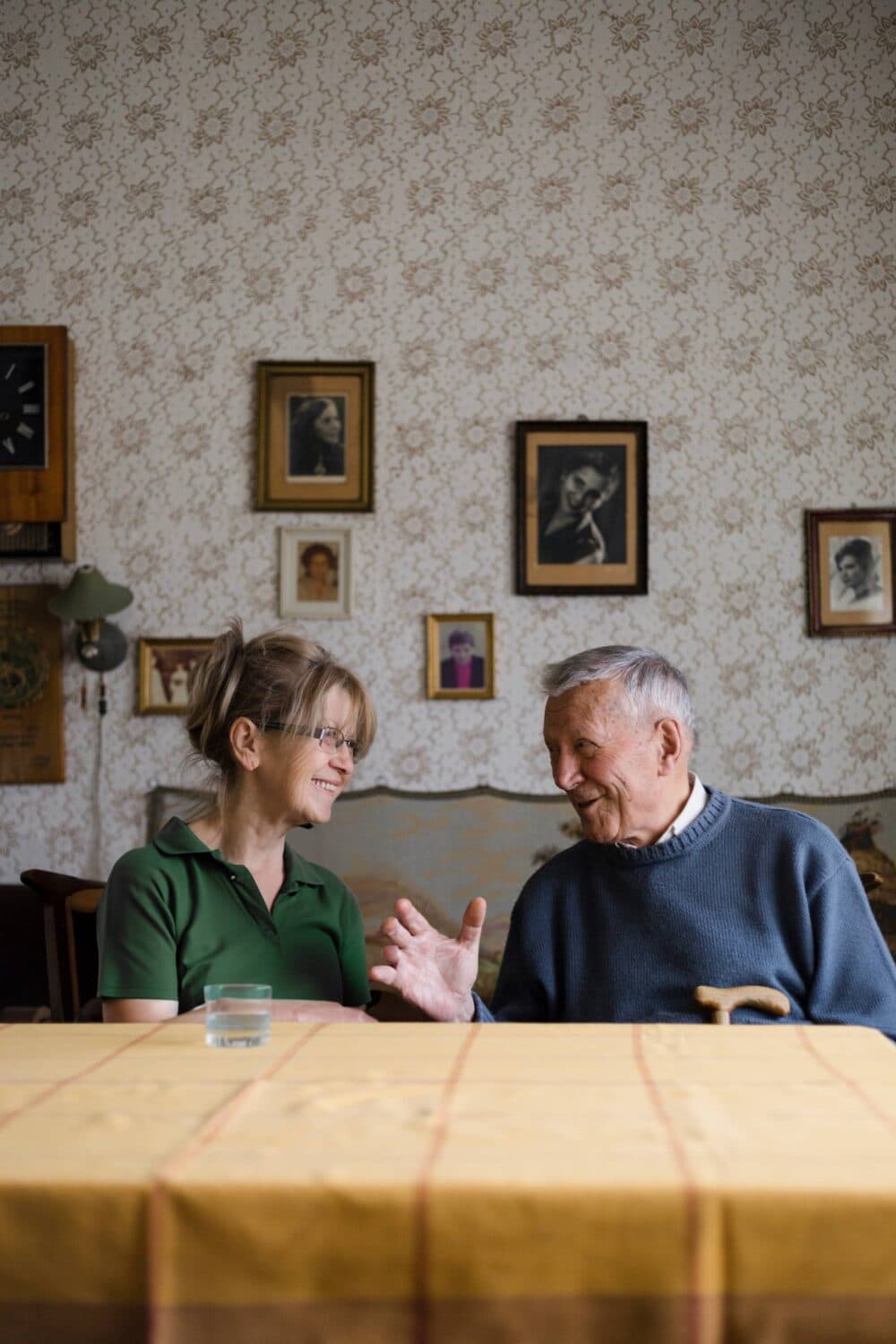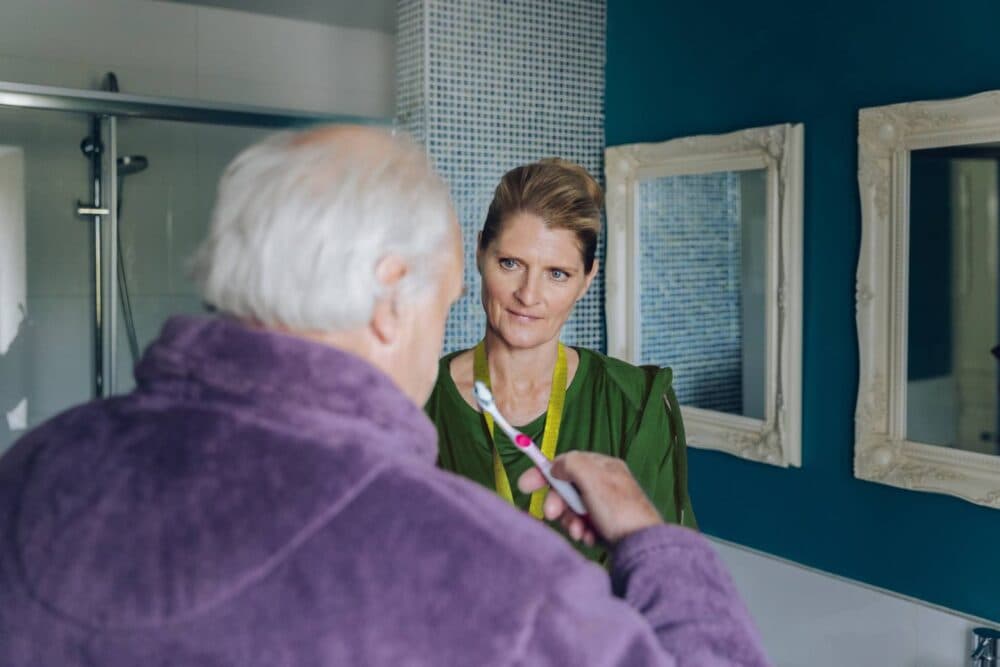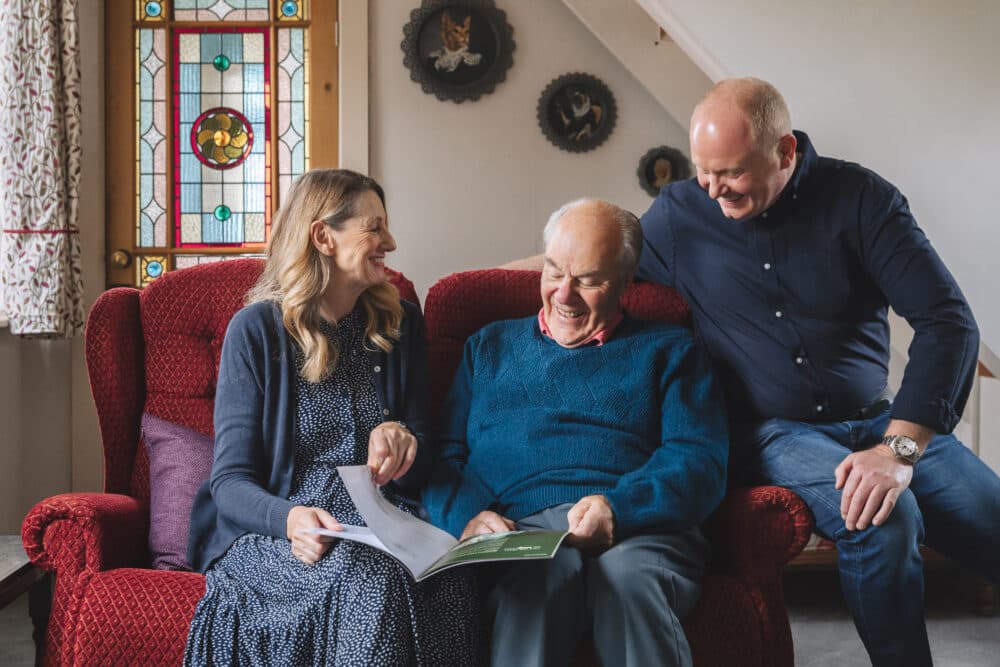Does a Live-In Carer Have to Pay Rent? The Important Facts You Need to Know

Have you ever wondered whether live-in carers must pay rent for the homes they live in while providing care? It’s an important question, and one that deserves a clear, compassionate answer. At Home Instead South Lanarkshire, we believe in creating supportive environments for both our clients and their carers. In this blog, we provide an educational and caring explanation of how live-in care arrangements work, with particular focus on rent and housing rights.

Understanding Live-In Care
Live-in care allows individuals who need daily support — such as older adults, people living with disabilities, or those managing long-term health conditions — to remain safely in their own homes. A professional caregiver moves in and provides assistance with tasks like cooking, cleaning, personal hygiene, mobility, medication support, and companionship.
This arrangement offers a valuable alternative to residential care homes, enabling people to retain their comfort, dignity, and independence.

How Live-In Care Works
When a carer lives with the person they support, accommodation is usually included as part of their employment package. The carer is given a private bedroom and access to household facilities, allowing them to be available around the clock.
Even though carers live where they work, their rights as workers must be protected. They are entitled to proper rest breaks, private time, and fair treatment under employment law. It is not an informal living arrangement — it is a professional agreement that must respect their wellbeing.

Do Live-In Carers Pay Rent?
In standard live-in care agreements, carers do not pay rent or housing bills. Accommodation is provided as a “benefit in kind” — part of their overall pay package. Their salary and living space are offered together, recognising the unique commitment they make by living in someone else’s home.
The arrangement differs from a traditional tenancy. In a standard rental situation, a tenant pays rent in exchange for the exclusive right to occupy a property. A live-in carer, however, resides in the home solely to deliver care and support, not as an independent tenant.
This important distinction ensures that carers are not burdened with housing costs when their presence is a necessary part of the care service they provide.

The Pay and Benefits of Live-In Caregivers
Carers receive wages for their work, with accommodation included as part of their overall earnings. Importantly, any benefits — including housing — must not reduce their salary below the legal minimum wage. The total financial package must be clear, fair, and written into their employment contract.
Tax and National Insurance contributions are usually deducted by employers, but carers should always seek professional advice to ensure they meet any personal tax obligations.

Common Misunderstandings About Rent for Live-In Carers
A common misconception is that live-in carers must contribute to rent or utility bills. Under proper live-in care agreements, this is not the case. Charging carers rent would only be lawful if it is explicitly stated in their employment contract, and even then, deductions must not push earnings below minimum wage levels.
If a live-in carer is asked to pay rent without clear written terms, they should seek advice from a labour rights organisation to ensure they are being treated fairly.

When Might a Live-In Carer Pay Rent?
While rent charges are rare, there are some circumstances where a live-in carer might contribute towards housing costs:
- Private Employment Arrangements: In informal, privately arranged care agreements (without agency involvement), families might ask for a contribution toward housing costs. This must be fair and clearly agreed in writing.
- Agency Policies: Some agencies may deduct a small amount for accommodation, but it must be reasonable and lawful.
- Shared Accommodation: If the carer shares a home with others and has a more tenant-like arrangement, rent contributions might apply.
- Regional Legal Differences: Local regulations can sometimes affect how housing costs are handled.
In any of these cases, transparency is key. Carers should always understand the full terms of their employment before accepting a role.

How Rent Deductions Should Be Calculated
If housing costs are part of the agreement, they must be reasonable and carefully calculated. Approaches include:
- Charging around 20% of the carer’s salary
- Using the market value of the accommodation
- Considering the property’s location, facilities, and condition
Most importantly, any deduction must not leave the carer with an income below minimum wage.

Employment Contracts and Accommodation Terms
Employment contracts for live-in carers should always specify:
- Pay rates
- Hours of work
- Details about accommodation
- Whether any housing costs apply
- Terms relating to breaks and private time
Having clear terms protects both the carer and the client, ensuring mutual respect and understanding.
Carers should also be aware that if their employment ends suddenly, they may need to vacate the provided accommodation quickly. It is always sensible to discuss notice periods and contingency plans when entering a live-in care agreement.

Real-Life Example: Caregiving and Housing Costs
A recent situation highlights the importance of understanding benefit and housing rules. In 2024, a woman receiving enhanced rate Personal Independence Payment (PIP) had her daughter move in to provide full-time care. Despite confusion from officials, no housing contribution was required from the daughter because of her mother’s PIP award. Once challenged with evidence, the error was corrected.
This example demonstrates the need to stay informed, keep good records, and seek advice if housing costs or benefits are handled incorrectly.

Different Types of Live-In Care Arrangements
Live-in care can look slightly different depending on the situation:
- Rent-Free Care: Common among family members.
- Rent Deducted from Salary: Sometimes seen with agency-employed carers.
- Formal Rental Agreements: Very rare but possible in specific employment models.
Each arrangement must respect employment law and ensure that carers are paid fairly.

What Influences Whether Rent is Charged?
Several factors determine if rent applies:
- Whether the carer is a family member or employed professional
- The exact terms of the employment contract
- Interactions with benefits like Universal Credit and PIP
- Local or national regulations

Responsibilities of Those Providing Accommodation
Those offering accommodation to live-in carers must ensure that:
- The living space is safe and comfortable
- Any rent or deductions are lawful and agreed
- The carer is treated with fairness and respect
Accommodation should never be used to pressure or disadvantage the carer.

Alternatives to Live-In Care
Live-in care is not always the right choice for everyone. Alternatives include:
- Hourly Home Care: Scheduled visits without overnight stays
- Adult Day Centres: Support provided outside the home
- Shift-Based Care: Different carers cover care needs across set shifts
Each alternative has its own benefits depending on individual preferences and care needs.

Challenges of Live-In Care
While rewarding, live-in care can present challenges for carers:
- Limited personal space
- Risk of emotional burnout
- Financial uncertainty if employment is unstable
- Emotional impact of client health decline
Providing carers with proper support, rest time, and respect helps create a positive and sustainable arrangement.

The Future of Live-In Care
As the UK population ages, live-in care is expected to become an even more important part of health and social care. Developments are likely to include:
- Greater use of technology to support care
- Stronger legal protections for carers
- Enhanced cultural awareness and sensitivity training
Home Instead South Lanarkshire is committed to shaping a future where live-in carers and clients thrive together, with dignity and respect at the heart of every arrangement.

Final Thoughts
Live-in carers typically do not pay rent because accommodation is included as part of their professional package. Where rent is involved, it must be reasonable, lawful, and clearly set out in writing.
Understanding the legal, financial, and practical aspects of live-in care ensures that both carers and clients can enjoy supportive, respectful living arrangements.
If you have any questions about live-in care in South Lanarkshire, or want to learn more about how Home Instead South Lanarkshire can support your family, please reach out to us. We are here to help.

Areas We Serve
Lanark, Carluke, Biggar & the surrounding areas
G75 0, G75 9, ML10 6, ML11 0, ML11 7, ML11 8, ML11 9, ML12 6, ML3 0, ML3 6, ML3 7, ML3 8, ML3 9, ML8 4, ML8 5, ML9 1, ML9 2, ML9 3
7 St Leonard St, Lanark ML11 7AB, UK
01555 700601